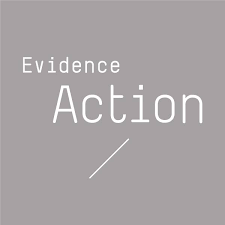Global Poverty
Written by Colin Aitken
Why focus on this problem?
“Poverty is not just a lack of money; it is not having the capability to realize one’s full potential as a human being.” [1]
It is difficult to convey just how serious the problem of global poverty is.
Its human cost is almost too high to imagine. Every night children go to sleep hungry, toddlers die of curable diseases, and desperate men and women find themselves exploited by human traffickers and other bad actors.
There are no words to fully describe the suffering poverty leaves in its wake.
There is no heartrending anecdote that captures the scale and severity of its evil.
There is no way to comprehend just how heavy a burden we’ve asked the global poor to carry.
But there is something you can do to help them carry it.
We share how in this summary and in our full report.
Members of GiveDirectly’s Kenya and Uganda field teams. GiveDirectly is one of our most recommended charities for donors passionate about fighting poverty. [2]
Our overall view
Very often recommended
We think most of our readers should consider working on and/or donating to this issue.
What is our recommendation based on?
Biblical themes:
"God's Word teaches a very hard, disturbing truth. Those who neglect the poor and the oppressed are really not God's people at all—no matter how frequently they practice their religious rituals nor how orthodox are their creeds and confessions."
Ron Sider, Rich Christians in an Age of Hunger
There are more than two thousand bible verses about God’s heart for the poor and the Christian duty to pursue care, mercy, and justice for the poor and marginalized.
Particularly strong commandments concerning serving the “least of these” (Matthew 25:31-46, 1 John 3:16-18)
God is frequently portrayed as an advocate for the oppressed (e.g. Psalm 9:9, Psalm 12:5, Psalm 72:12-14)
Jesus describes the gospel as “good news to the poor” and promises blessing for the poor but judgment for the rich (Luke 4:18, 6:20-23, 16:19-31)
Brian Fikkert pursued a PhD in economics at Yale University after he heard a calling to serve the global poor.
Christians Past and Present:
Christians throughout history and across a wide range of denominations have affirmed that serving the poor is a key part of Christian ministry.
Christians today have been at the forefront of evidence-based approaches to fighting poverty.
Strong secular evidence:
Our approach to fighting poverty is based on research from experts at Harvard, MIT, Oxford, and more!
We unpack this problem and some high-impact solutions in our full report.
What are common theological arguments against it being pressing?
Some Christians believe that, while poverty is an important problem, spiritual needs (e.g. the gospel) are a bigger priority than physical ones.
Other Christians fear that our focus on the global poor may lead us to neglect the local poor and other members of our immediate community.
Others worry that our focus on measurable impact might cause us to overlook the individuality and dignity of the people we’re called to serve.
Want to Make A Difference? Donate Now:
Top Picks:
GiveDirectly: Send money directly to the global poor.
Village Enterprise: End extreme poverty through entrepreneurship and innovation.
Evidence Action: Scale-proven, cost-effective solutions like deworming and chlorination.
Christian Standouts:
Other ways to make an impact:
Use your career to serve the global poor (see our full report for some ideas!)
For example, Asia Wiaterek aims to use her career to shape policy around AI in order to tackle global poverty. Check out her career journey up to now here.
Luke works at an early startup called Kapu Africa aimed at reducing the cost of living for Kenyan households to free up their income for other expenses. Check out his full career journey here.
Pray for the global poor and for those who serve them.
Pursue any meaningful career and take the Giving What We Can pledge to donate at least 10% of your income to effective charities tackling extreme poverty.
Join the fight against diseases disproportionately affecting the global poor. Compelling research shows that treating or preventing diseases plays a key role in bringing people out of poverty, and can have substantial impact on their income later in life.
Notes:
[1] Poor Economics, by Abhijit V. Banerjee and Esther Duflo, summarizing work by Amartya Sen.





